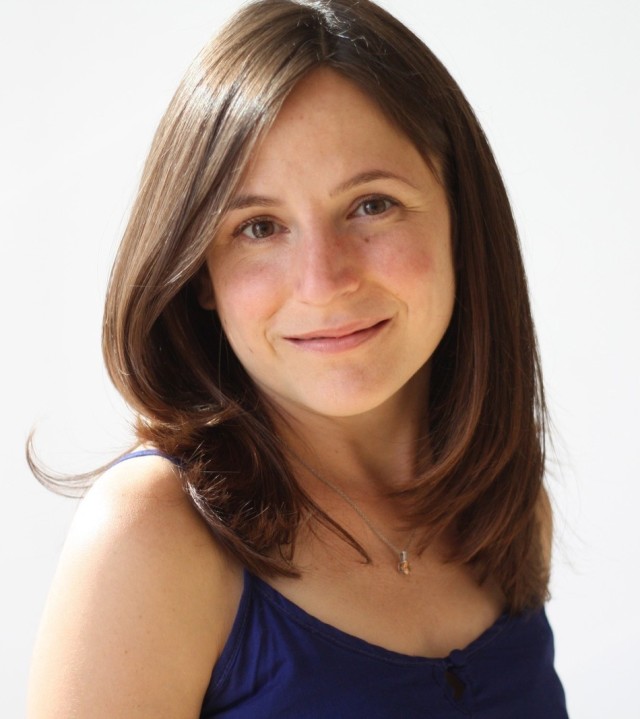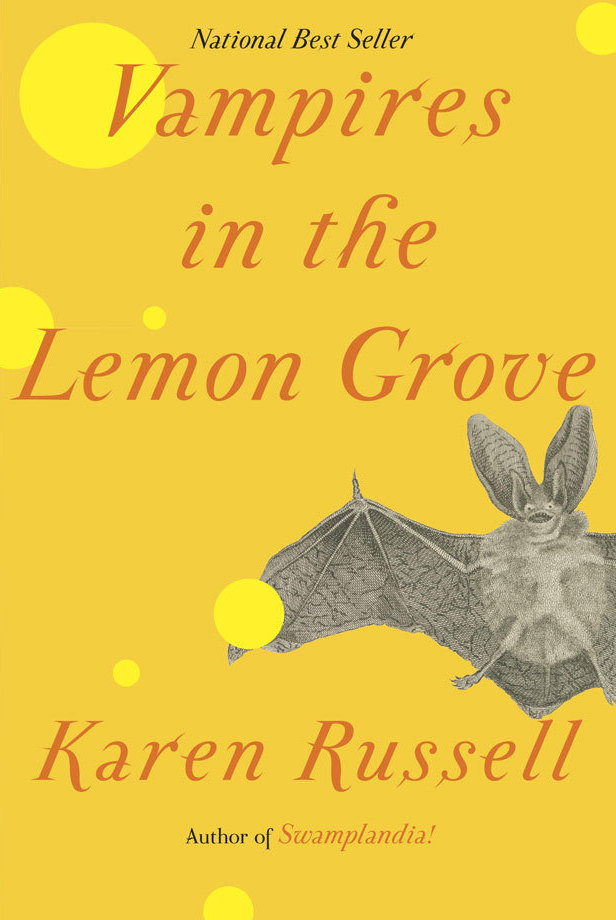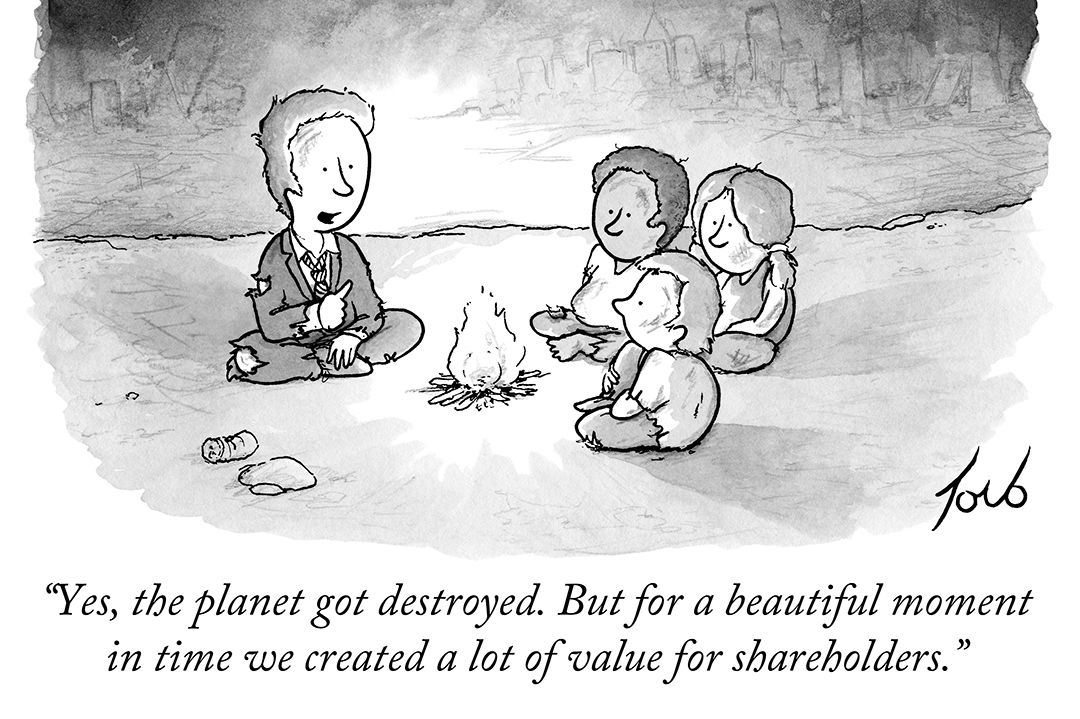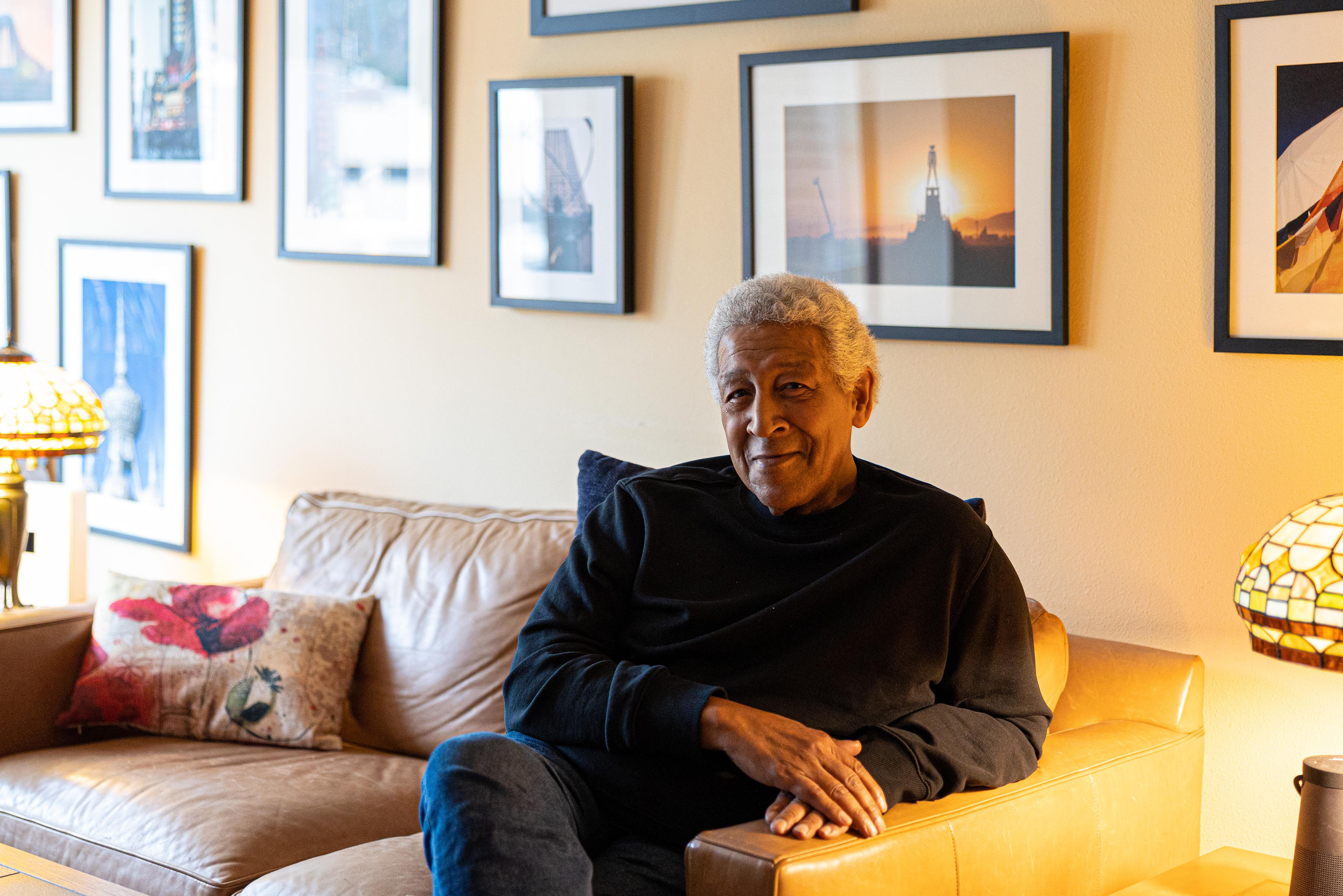Q&A: Pulitzer-Nominated Writer Karen Russell

Karen Russell’s newest book, Vampires in the Lemon Grove, might mention the blood-sucking craze cruising through popular culture in its title, but the short story collection couldn’t stray further from the anemic aesthetic impulse seen by the likes of Twilight. The book marks the much-anticipated addition to Russell’s highly decorated, albeit slim bookshelf—St. Lucy’s Home for Girls Raised by Wolves and the Pulitzer-nominated Swamplandia!—that has won her a spot on seemingly everyone’s best young writers lists.
Whether she is describing a herd of horses that are really reincarnated dead U.S. Presidents or young girls in feudal Japan that spin silk from their stomachs while slowly turning into the product they produce, Russell paradoxically guides the reader through fantastical landscapes into surprisingly dark and familiar feelings.
In advance of her reading at Powell’s Books Cedar Hills Crossing on April 4, Culturephile spoke with Russell about the Pulitzer nomination, lemon-slurping vampires, busty elf maidens, and if there’s ever an idea that’s too far fetched.
Where were you and what was it like to learn of your Pulitzer nomination last year?
I had a fellowship with the American Academy in Berlin, and I had been reading about bullfighters, because I was going to interview Juan Jose Padilla for GQ. Or more likely I was watching YouTube videos to try and figure out what certain terms corresponded to, and I then I thought, “Oh the Pulitzers are announced.” They don’t tell you if you are a finalist in advance. I just went to the website and saw first no winner. Then I got a call from my publisher. It was a lot to take in.
Did you do something to celebrate?
A friend and I took the bus down to my favorite restaurant in Kreuzberg. I might have had one beer. I was like, let’s go to the buffet. I think it was kind of a buffet kind of sensation: all that food touching, everything a little mixed up. Why was that my reaction? Isn’t that so sad and way too candid?
Did the nomination up the stakes and the trepidation for this book?
It really did. But I think I was lucky insofar that I was actually in the last stages of revision and finishing two of the stories when I got that news. Short of going back to some hut on the mountain and rewriting all of the stories in the book, there was nothing I could do. I had a deadline. I couldn’t get too hung up on my own anxieties.

You write about such fantastical subjects. In addition to dead U.S. Presidents reincarnated as horses and young girls in feudal Japan spinning silk from their stomachs, there's the title story about two aged vampires seeking solace in an Italian lemon grove, having discovered, after sampling “coconut slurries in Oahu, jet-black coffee in Bogota, jackal’s milk in Dakar and Cherry Coke Floats in rural Alabama,” that Sorrento lemonade alone can cull their lust for human blood. Where do the ideas come from, and why do you choose such fantastical subjects?
I’ve always felt like I’m best able to be honest in a story when there is a slippery ratio of real to more fantastic details. One of the reasons I like working in that fabulist register—or having something happen that wouldn’t be possible in the natural laws of our universe—is that it frees me up in other ways.
I think with a lot of authors it’s the opposite. They would feel too silly to try to write from the point of view of a president’s soul inside a horse. That would feel alienating. But that leap frees something up for me. It’s fun to make up an imaginary place and set up the rules of that place, but I think in emotional terms, it is easier for me to be honest, to write about loss or whatever animating emotion, if I am a few degrees removed from the reality that we all occupy on a Tuesday.
Do you ever reach a point where you go, “oh no, that’s simply too far fetched”?
Oh definitely. There’s a shallow cemetery of premises and ideas that never came to life. Not necessarily because they are too far fetched, but because I couldn’t find a way to make them feel consequential. Not for myself writing it, and certainly not for a reader.
Right, so in “Vampires in the Lemon Grove,” you use fabulist mythological monsters to explore the very real subjects of addiction, life-long monogamy, temptation, and deceit. And in “Reeling for the Empire,” you use silk-spinning laborers to probe the topic of sweat shop labor. What is the chicken and egg equation for you: does the fantastical subject come first, or the topic you want to explore through it?
With St. Lucy’s Home for Girls Raised by Wolves, in almost every situation I had a setting, or a landscape, and some kind of what-would-happen-if kind of jokey premise. If it worked at all it would develop its own life. I’d wonder: what if these two boys that live in a beach community in Florida found a pair of goggles that let them see ghosts. And then I’d wonder: what are they looking for? It could be a terrible story if they were looking for some kind of treasure or for Billy Cosby’s ghost dad. But they ended up looking for their dead sister, so it became a way to use that premise as a vehicle of revelation about what these boys really want to see, what they are longing for, which is to have a connection with their sister who they’ve lost. So sometimes it will happen that way.
In the case of the vampire story, it started with this image from when my siblings and I were on vacation in this lemon grove in Sorrento. We saw a tiny old man who looked to me like a septuagenarian tan vampire drinking lemonade, and I was just like: what if he is vampire and he can only be outside because the lemonade he is drinking is some kind of vampire methadone. Only I thought this was funny, but somehow it developed its own kind of life.
With “New Veterans,” I had much more of a graphed out and explicit approach to drafting. I never have a real specific agenda. I never have one single moral I’m trying to deliver. It never works like that for me. But I did know I wanted to think about trauma and the body and healing and that image presented itself to me as a way to think through those issues. Then there’s a feedback loop where they are kind of developing together.
Have you ever been nervous to trod into territory that might get labeled “genre” fiction? I’m thinking vampires specifically, which are such a craze right now?
I grew up reading a lot of sci-fi and fantasy. When I cite my influences now, I cite the masters, but I read plenty of funky stuff, real genre stuff. We’re not talking Tolkien. We’re talking there’s an elf lady with a lot of cleavage on a boat on the cover. Anyone who wants to read my stories, please come to that party.
But I was a little worried about the title. I know if I saw vampires in a title, I might assume that the book wasn’t for me. When I came up with that story, I don’t think Stephanie Meyer had completed her conquest of our country, so we hadn’t reached a state of total exhaustion and jadedness about that monster.
I don’t think I’ve ever worried my stories would get classified as genre. The suspense in them tends to be psychological. People who want the real gut-clenching suspense of genre would be like: “I don’t want any more alliteration. Somebody needs to die. I don’t particular care about this dudes interiority. Get naked or die.”
So elf-maiden fantasy. What other author’s and books inspired your writing?
Ray Bradbury certainly. Stephen King. The vibrancy of their imaginations and how idiosyncratic their worlds are: they are the only people who could have created those universes. Frank Herbert who wrote Dune. Richard Adams who wrote Watership Down. It’s about how immense their worlds were, how fully imagined—not just the characters, but there’s this place that doesn’t exist that you can import your memories into. Their writing is so precise, it feels like a memory returning to your body to read them
In college: Junot Diaz and George Saunders. I still had a narrow idea of what a short story could do then. Reading their idiosyncratic first person wisecracking—that these could coexist inside a “literary short story”—that was a great thing to see.
A huge one for me was Geek Love by [Portland author] Katherine Dunn. I just love that book. I’ve never read anything at all that comes close to the experience of reading that book for the first time. It felt like catching a fever to read it, like having some kind of jungle hallucination.
What are you working on now?
It’s a longer project set in the Dust Bowl draught, and, of course, I also have a few corner of the eye stories. It’s anybody’s guess whether they are going to pan out or not.
Have you had any interest from directors or producers about making any of your stories into films?
The title story of St. Lucy’s Home for Girls Raised by Wolves has been optioned for a film. It has been for a while. It would be exciting if anything came of that.
Somehow I doubt Warner Brothers is going to want to make presidents-as-horses into one of their three hour films. But Warner Brothers, feel free to give me a call. Daniel Day Lewis can play all of those horses.




